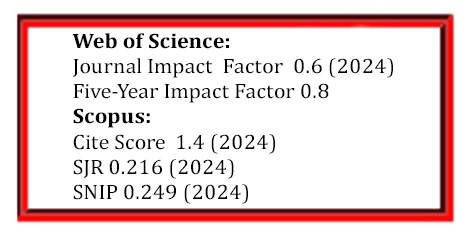The Effect of Waste Oil-Cracking Catalyst on the Properties of MCC-Type Castable
Keywords:
waste oil-cracking catalyst, refractory MCC-type castable, mechanical tests.Abstract
In this study a possibility to use the waste oil-cracking catalyst from fluidized cracking in the production of middle
cement castable (MCC) was investigated. Viscosity tests of cement paste as well as dilatometric, X-ray investigations
and SEM observations of structure of castable matrices (binder) were done. The effect of waste oil-cracking catalyst (the
amount of which was 0; 2,5; 5,0; 7,5 %) on the rheologic characteristics of the castable‘s mixture and exothermic
temperature during the hardening process was analyzed. It was established that the additive of the waste catalyst reduces
the appearance time of maximum exothermic temperature. The resulted rheological and physical-mechanical
characteristics show that the optimal amount of waste catalyst in the composition of the castable reaches 5 %. This
amount of the additive allows to improve the strength characteristic of the castable (the compressive strength of the
castable after hardening and firing at different temperature is 35 % – 20 % higher when compared to the compressive
strength of the castable without the additive.
Downloads
Published
Issue
Section
License
The copyrights for articles in this journal are retained by the author(s), with first publication rights granted to the journal. By virtue of their appearance in this open-access journal, articles are free to use with proper attribution in educational and other non-commercial settings.



